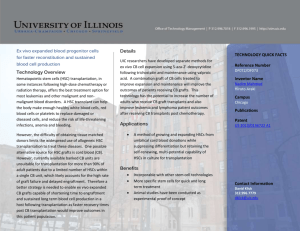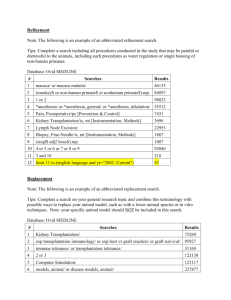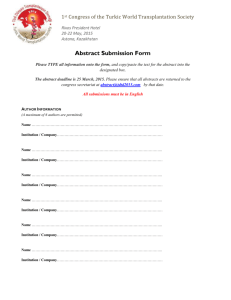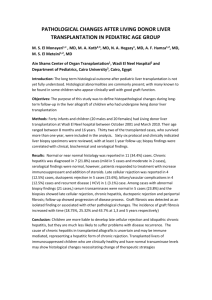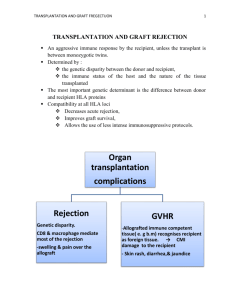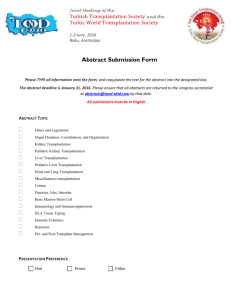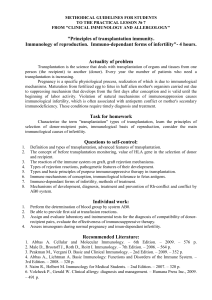Decrease of blood type antigenicity over the long
advertisement
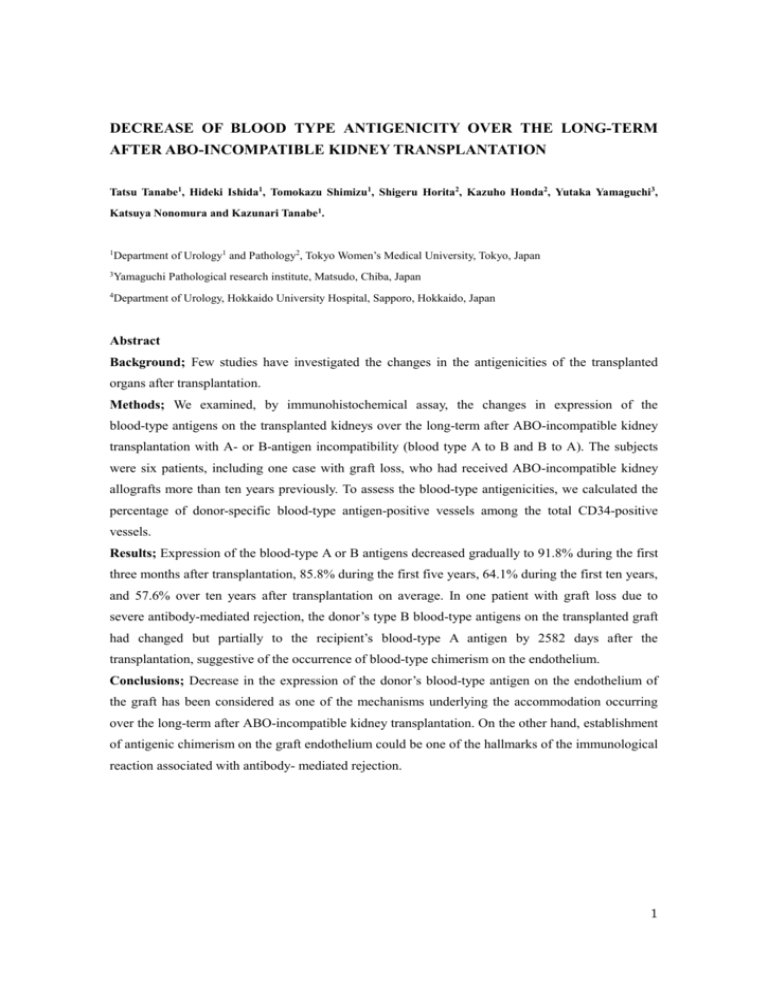
DECREASE OF BLOOD TYPE ANTIGENICITY OVER THE LONG-TERM AFTER ABO-INCOMPATIBLE KIDNEY TRANSPLANTATION Tatsu Tanabe1, Hideki Ishida1, Tomokazu Shimizu1, Shigeru Horita2, Kazuho Honda2, Yutaka Yamaguchi3, Katsuya Nonomura and Kazunari Tanabe1. 1Department 3Yamaguchi 4Department of Urology1 and Pathology2, Tokyo Women’s Medical University, Tokyo, Japan Pathological research institute, Matsudo, Chiba, Japan of Urology, Hokkaido University Hospital, Sapporo, Hokkaido, Japan Abstract Background; Few studies have investigated the changes in the antigenicities of the transplanted organs after transplantation. Methods; We examined, by immunohistochemical assay, the changes in expression of the blood-type antigens on the transplanted kidneys over the long-term after ABO-incompatible kidney transplantation with A- or B-antigen incompatibility (blood type A to B and B to A). The subjects were six patients, including one case with graft loss, who had received ABO-incompatible kidney allografts more than ten years previously. To assess the blood-type antigenicities, we calculated the percentage of donor-specific blood-type antigen-positive vessels among the total CD34-positive vessels. Results; Expression of the blood-type A or B antigens decreased gradually to 91.8% during the first three months after transplantation, 85.8% during the first five years, 64.1% during the first ten years, and 57.6% over ten years after transplantation on average. In one patient with graft loss due to severe antibody-mediated rejection, the donor’s type B blood-type antigens on the transplanted graft had changed but partially to the recipient’s blood-type A antigen by 2582 days after the transplantation, suggestive of the occurrence of blood-type chimerism on the endothelium. Conclusions; Decrease in the expression of the donor’s blood-type antigen on the endothelium of the graft has been considered as one of the mechanisms underlying the accommodation occurring over the long-term after ABO-incompatible kidney transplantation. On the other hand, establishment of antigenic chimerism on the graft endothelium could be one of the hallmarks of the immunological reaction associated with antibody- mediated rejection. 1
